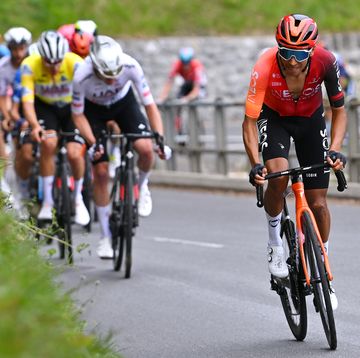The Equitable Commute Project (ECP), a coalition of seven New York City organizations working to expand economic access through sustainable micromobility (lightweight transportation over short distances usually provided by single-person vehicles), met with NYC lawmakers, advocates, and delivery workers on September 22. They celebrated new e-bike safety legislation and demonstrated sustainable, affordable transportation options for delivery workers.
In August, NYC announced that it would become the first U.S. city to regulate the safety of e-bikes and e-scooters. This means all battery-powered devices must be certified to UL 2849, a new safety standard required for any e-bike sold or rented in the city. UL 2849 is a safety standard to certify the complete system—including the charger and battery—is safe against mechanical hazards.
According to a press release, the event offered e-bike test rides, hosted by the ECP as part of its Sustainable, Affordable, Fire-Safe E-Bike (SAFE) Program.
“Under the SAFE Program, NYC-based delivery workers can apply to trade-in their non-compliant e-bike or moped in exchange for heavily discounted pricing on UL-2849 certified e-bikes with two batteries. This first-of-its-kind program, supported by local bike shops Propel, GoGo Gone, and The Hub with funding contributions from Uber and DoorDash, has already attracted more than 250 applicants, and ECP will host trade-in events every Wednesday through November to accommodate the demand. A low-cost,12-month loan is also available to delivery workers from ECP-coalition member Spring Bank to approved participants,regardless of credit score.”
ECP Co-founder Melinda Hanson told Bicycling that they initially launched a pilot program in July, just to gather feedback and information about how the trade-in program could best serve NYC delivery workers. “A lot of the feedback that we got was that the bike that we were offering was just too expensive and that people were nervous about taking the loan.” So they worked on cheaper options.
“One of the other biggest pieces of feedback that we’ve heard in structuring this program is that city’s delivery workers need a very robust e-bike,” Hanson said. ECP got to work researching hearty e-bikes with a lower price point.
“In looking for UL-2849 certified e-bike options that are robust, and that would really stand up to the challenge, we introduced two additional bikes which are both at lower price points, which has helped to get more people through the program and allow them to pay out of pocket as opposed to taking a loan.”
Hanson estimates that the city has between 50,000 and 75,000 delivery workers, and for all of them speed, convenience, and safety are big issues when it comes to transportation. In order to get the word out about the trade-in options, ECP is working with their funders, Uber and DoorDash.
“The issue has not been getting people interested and enrolled. I think people are very interested in the program. It’s just that the transaction process is somewhat rigorous. We have to verify that people are actually delivery workers, they have the right bike to trade in, and the financial piece [of paying for a bike or taking a loan]. We’re losing people in the many-steps part.”
Hanson says they’ve also seen delivery workers recently opting for mopeds instead of e-bikes, which is a logical side-step that eliminates safety concerns around e-bike batteries. But mopeds come with a whole other set of complications.
According to Streetsblog, many delivery workers have “switched from e-bikes to the heavier and faster vehicles amid a string of deadly blazes attributed to cheap lithium-ion batteries.” But mopeds require license plates issued by the Department of Motor Vehicles. E-bikes don’t. And that’s a step that many delivery workers are skipping entirely.
Streetsblog reported that, “through Sept. 14 of this year, cops have seized 8,607 mopeds, more than double the 4,085 seized during the same period last year, according to the NYPD.” The issue is also now tied up in the recent influx of asylum seekers who have arrived in the city, many of whom are looking to delivery apps to make money.
Many people, possibly unaware of the laws, have been very dangerously driving mopeds in bike lanes, which is illegal and causing all kinds of safety issues. So while mopeds avoid the dangers of old e-bike batteries, they come with plenty of downsides.
Hanson is hoping that their e-bike trade-in program, in addition to the city’s own newly announced program, will continue to simplify the process of getting new bikes to workers. “I think one thing that's helped is the higher price point bikes basically necessitated that people take out a loan and now we’re seeing more folks able to pay out of pocket for the $700 or $925 bikes.” All of the new e-bikes also include two batteries.
Hanson remains hopeful that in working with city leaders, funders, delivery workers, bike shops, and battery recycling facilities, that e-bike trade-in options will remain the cleanest, safest, healthiest, cheapest option for workers throughout the city. Delivery workers can continue to apply for a trade-in while supplies last.

Micah Ling is a freelance writer who lives in the mountains of Colorado. She splits her free time between mountain biking and trail running.













